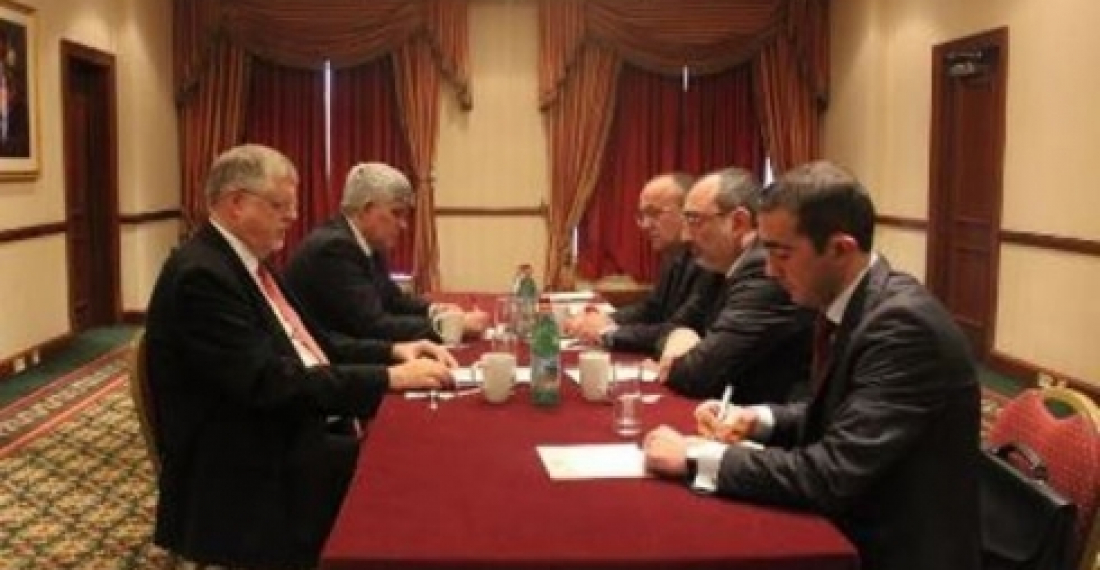The EU Special Representative for South Caucasus and the crisis in Georgia, Herbert Salber, on Tuesday (10 February) met with the Foreign Minister of the self--declared Nagorno-Karabakh Republic, Karen Mirzoyan. The meeting was held in Yerevan.
According to the website of the NKR Foreign Ministry during the meeting, "the sides exchanged views on the possibilities and prospects of cooperation between the EU and Artsakh. Karen Mirzoyan stressed the importance of ensuring the EU representatives' unimpeded access to Artsakh and invited Herbert Salber to visit the NKR in the framework of his mandate to get familiarized with the existing realities on the ground. Issues related to the process of peaceful settlement of the conflict between Azerbaijan and Nagorno Karabakh were also touched upon. In this context, the sides stressed the importance of the OSCE Minsk Group Co-Chairmen's efforts and the need to support them."
Speaking later in Yerevan, Ambassador Salber was quoted by Armenian media as saying that this was his first official meeting with NKR representatives and he hoped that the dialogue will continue.
The meeting between the EU Special Representative and the representative of the self declared Nagorn-Karabakh Republic was also positively evaluated in Baku"The Azerbaijani side repeatedly stressed that the Azerbaijani and Armenian communities of Nagorno-Karabakh region of Azerbaijan Republic should be in contact. The European Union can play a role in promoting these contacts," The Azerbaijani news agency APA quoted the spokesman for the Foreign Ministry Hikmat Hajiyev, as saying that the European Union could play a part in bringing together Armenians and Azerbaijanis from Nagorno-Karabakh.
Hajiyev told APA that "Armenians living in Nagorno-Karabakh region of Azerbaijan are also Azerbaijani citizens. As part of the visit to Azerbaijan in October 2014, the delegation led by EU Special Representative for the South Caucasus Herbert Salber also met with members of the Azerbaijani community of Nagorno-Karabakh region and listened to their opinions on the conflict settlement".
The spokesperson of the Azerbaijani Foreign Ministry also said that the Azerbaijani Government had been informed ahead of the meeting between Salber and Mirzoyan.
source: commonspace.eu
photo: The meeting between Ambassador Herbert Salber, the EU Special Representative for the South Caucasus and the Foreign Minister of the self-declared Nagorno-Karabakh Republic held in Yerevan on Tuesday, 10 February 2015 (Picture courtesy of the NKR Ministry of Foreign Affairs)







